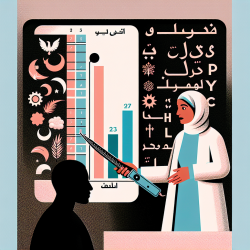The study aimed to determine whether the ROWPVT is a suitable tool for measuring receptive vocabulary skills in small-town Canadian kindergarten children. The research involved 176 children and revealed some significant findings:
- Standard scores were not normally distributed as expected.
- Far fewer children than anticipated scored more than 1 standard deviation below the test mean.
- The recommended starting point for the test was set too high.
So, what does this mean for you as a practitioner? Here are some key takeaways:
1. Reevaluate Your Screening Tools
The study found that the ROWPVT might lack sensitivity when used with small-town Canadian kindergarten children. This suggests that the test may not be identifying children with poor receptive vocabulary skills effectively. Consider diversifying your assessment tools to ensure you are capturing a comprehensive picture of a child's abilities.
2. Adjust Your Testing Protocols
If you continue to use the ROWPVT, start the test at a lower level than recommended. The study indicated that beginning the test two age categories below the suggested starting point could reduce the frequency of having to change direction during testing. This adjustment can make the process less confusing for young children.
3. Stay Informed and Continue Research
The study emphasized that these findings might not be applicable to other age groups or urban settings. It's crucial to stay updated with the latest research and consider conducting your own studies to ensure the tools you use are effective for your specific population.
In conclusion, while the ROWPVT has its limitations, understanding these can help you make informed decisions about its use. By adjusting your testing protocols and staying informed, you can improve your assessment accuracy and better serve your young clients.
To read the original research paper, please follow this link: Use of the ROWPVT with Small-town Canadian Kindergarten Children / Application du ROWPVT aux enfants de la maternelle d'une petite ville canadienne.










